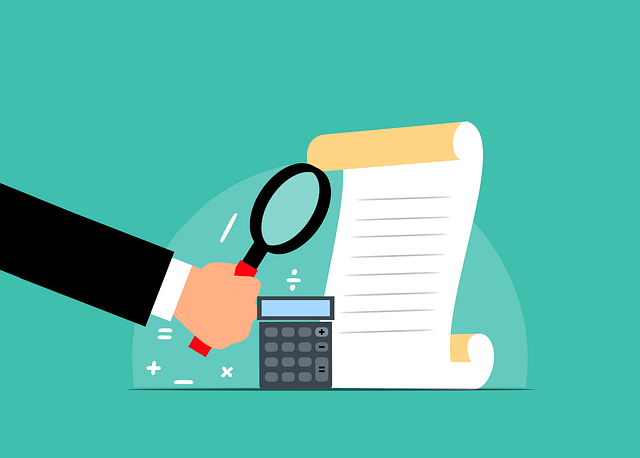Accounting and CPA firms face heightened cybersecurity risks due to handling sensitive financial data, remote work, and digital tool adoption. Navigating regulatory requirements like GDPR and CCPA while defending against advanced threats is crucial. Cloud-based software and remote access introduce new vulnerabilities that require robust IT policies, regular cyber audits, and professional services support. Cyber audits help CPAs identify and address issues related to remote access, phishing attacks, data integrity, and client trust, ensuring effective cybersecurity protocols in the digital era.
“In today’s digital landscape, cybersecurity is not just an option but a necessity for accounting and CPA firms. With sensitive financial data at risk, understanding and mitigating unique cybersecurity challenges is vital. This article explores comprehensive solutions tailored for CPAs, focusing on cyber audits as a powerful risk management tool. Discover best practices for data security, client confidentiality protection, and the potential of automated technology in enhancing cybersecurity measures. By implementing these strategies, accounting firms can navigate digital threats effectively.”
- Understanding the Unique Cybersecurity Challenges for CPAs
- The Role of Cyber Audits in Risk Management for Accounting Firms
- Implementing Strong Data Security Measures: Best Practices for CPAs
- Protecting Client Confidentiality: Strategies for CPA Firms
- Automating Cybersecurity with Technology Solutions
- Preparing for Cyber Threats: A Comprehensive Planning Guide for CPAs
Understanding the Unique Cybersecurity Challenges for CPAs

Accounting and CPA firms face unique cybersecurity challenges due to their handling of sensitive financial data. With the increasing adoption of digital tools and remote work arrangements, ensuring robust security measures has become paramount. CPAs must navigate complex regulatory requirements, such as GDPR and CCPA, while also defending against sophisticated cyber threats like phishing attacks, malware, and ransomware.
The integration of cloud-based accounting software and remote access security is a double-edged sword. While it offers flexibility and accessibility, it also introduces new vulnerabilities. Effective IT policy implementation and regular cyber audits for CPAs are essential to mitigate these risks. Professional services focused on IT compliance services can help firms establish secure workflows, protect data integrity, and maintain client trust in an ever-evolving digital landscape.
The Role of Cyber Audits in Risk Management for Accounting Firms

Cyber audits are becoming an indispensable tool for accounting firms looking to fortify their risk management strategies. In today’s digital landscape, where threats like phishing, ransomware, and compromised remote access security are ever-present, a proactive approach to cybersecurity is crucial. Cyber audits provide a comprehensive assessment of an accounting firm’s existing security measures, identifying vulnerabilities and offering tailored recommendations for improvement.
By incorporating these audits into their routine practices, CPAs can ensure robust data protection, especially when dealing with sensitive financial information. Email encryption, a key component often targeted by cybercriminals, is just one area that these audits scrutinize. By evaluating the effectiveness of existing security protocols and implementing best practices in remote access security and phishing protection, accounting firms can mitigate risks and maintain the integrity of their operations.
Implementing Strong Data Security Measures: Best Practices for CPAs

In today’s digital landscape, accounting and CPA firms handle vast amounts of sensitive financial data, making them prime targets for cybercriminals. Implementing robust data security measures is no longer an option but a necessity. Best practices include regular cybersecurity audits to identify and mitigate risks. These audits should encompass all aspects of the firm’s operations, from network infrastructure to employee training on recognizing phishing attempts and following safe data handling protocols.
A comprehensive IT policy implementation is pivotal. This involves establishing clear guidelines for accessing and managing data, using strong access controls like multi-factor authentication, and regularly updating software patches to patch known vulnerabilities. Additionally, a robust firewall for CPAs acts as a barrier against unauthorized access, ensuring that sensitive information remains secure. These measures not only protect client data but also maintain the integrity and reputation of the accounting firm itself.
Protecting Client Confidentiality: Strategies for CPA Firms

In the realm of accounting and CPA firms, safeguarding client confidentiality is paramount. With sensitive financial information at risk, implementing robust cybersecurity measures is no longer an option but a necessity. CPAs are increasingly turning to cyber audits to ensure their practices meet industry standards and protect data security. These audits delve into various aspects, including remote access security, to mitigate potential vulnerabilities. By adopting advanced encryption technologies and multi-factor authentication, firms can secure client data stored both on-premises and in the cloud.
Moreover, integrating phishing protection solutions is a strategic move for CPA firms to stay ahead of evolving cyber threats. Training employees to recognize phishing attempts and implementing automated tools to detect suspicious activities are crucial steps. Combined with regular security updates and patches, these strategies create a formidable defense against data breaches. In today’s digital era, where remote work is prevalent, ensuring secure remote access is vital to maintain client trust and confidentiality.
Automating Cybersecurity with Technology Solutions

In today’s digital era, cybersecurity is no longer an option but a necessity for accounting and CPA firms. Automating cybersecurity with advanced technology solutions can significantly enhance their operational resilience. By implementing robust IT policies and integrating automated audit tools, these firms can streamline their security measures and conduct efficient cyber audits for CPAs. This ensures that critical accounting data breaches are identified and mitigated promptly, safeguarding sensitive financial information.
The process starts with a thorough review of existing IT infrastructure to pinpoint vulnerabilities. Once identified, technology solutions like encryption software, multi-factor authentication, and real-time threat detection systems can be deployed. These tools not only protect against malicious attacks but also enable proactive cybersecurity audits, allowing firms to stay ahead of emerging threats. Effective IT policy implementation, coupled with automated audit capabilities, forms the backbone of a comprehensive cybersecurity strategy tailored for accounting professionals.
Preparing for Cyber Threats: A Comprehensive Planning Guide for CPAs

In today’s digital era, cybersecurity threats are a constant concern for accounting and CPA firms. To mitigate these risks effectively, CPAs need a comprehensive planning guide that addresses the unique challenges they face. A robust strategy should start with a thorough risk assessment, identifying potential vulnerabilities in their systems and data flows. This process involves evaluating remote access security protocols, as many professionals now rely on VPNs for CPAs to conduct work remotely, introducing new vectors for cyberattacks.
Implementing strong access controls, regular software updates, and employee training is essential. Additionally, email encryption should be a cornerstone of any cybersecurity plan, as it safeguards sensitive financial information exchanged digitally. By integrating these measures into their daily operations, accounting firms can better prepare for potential cyber threats, ensuring data integrity and client confidentiality.
